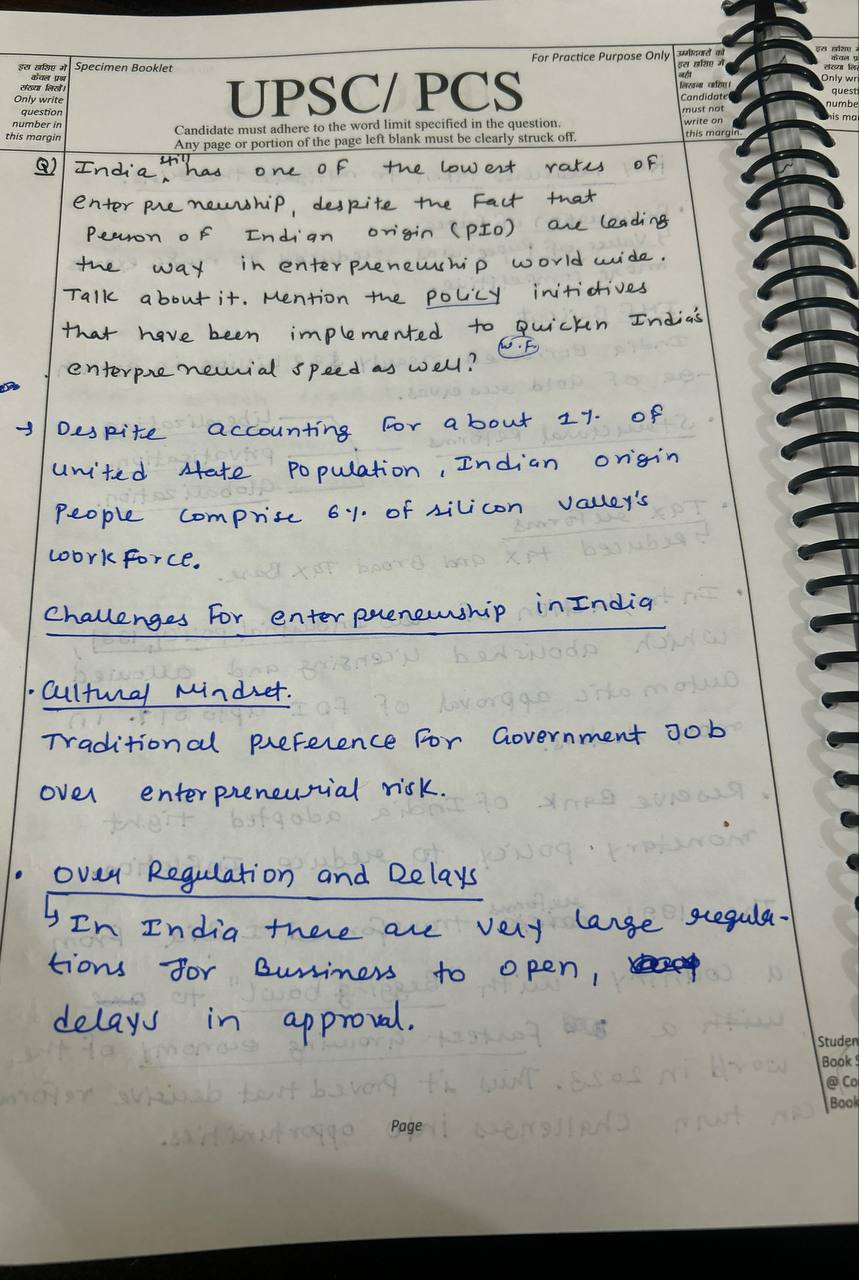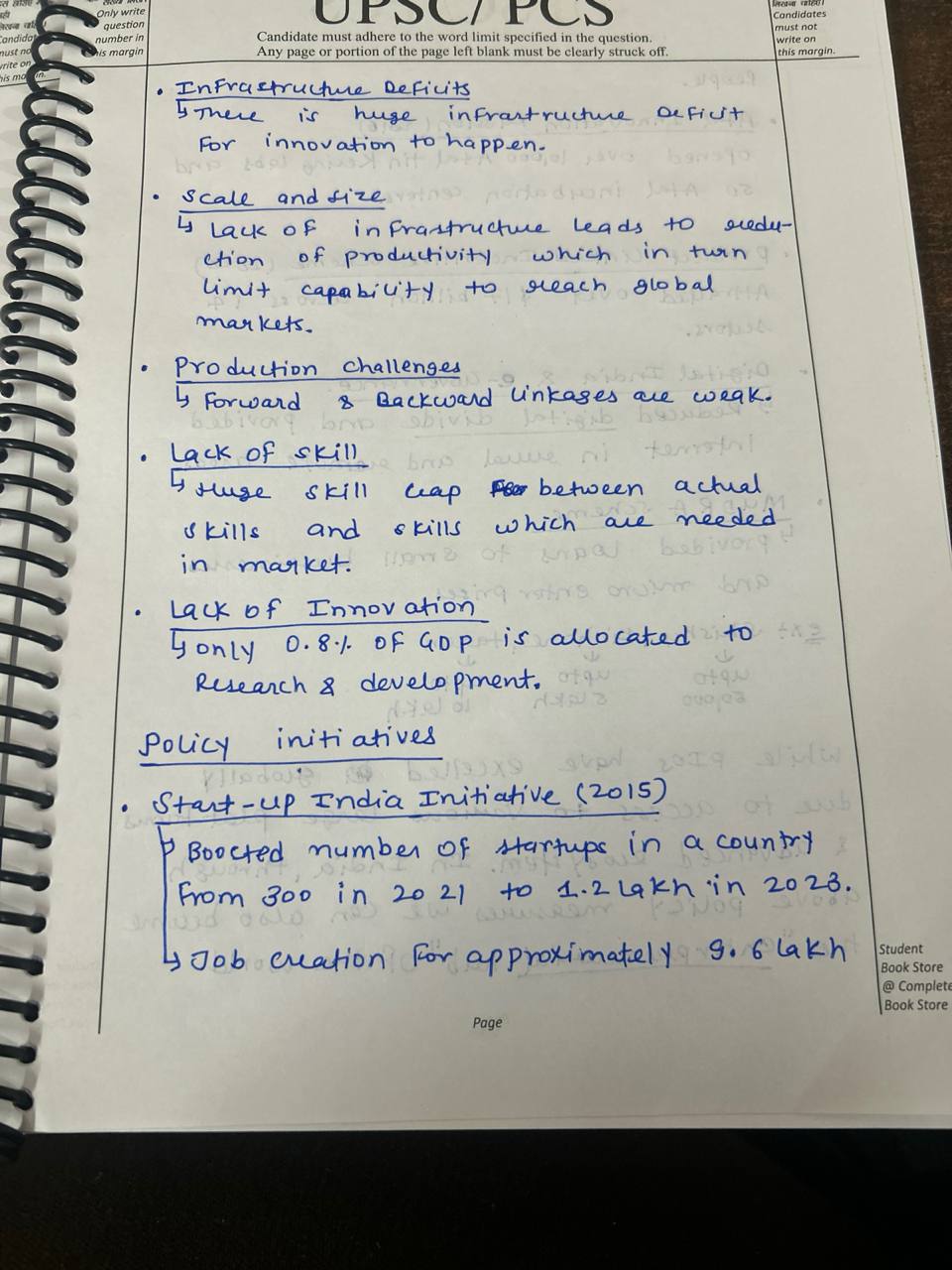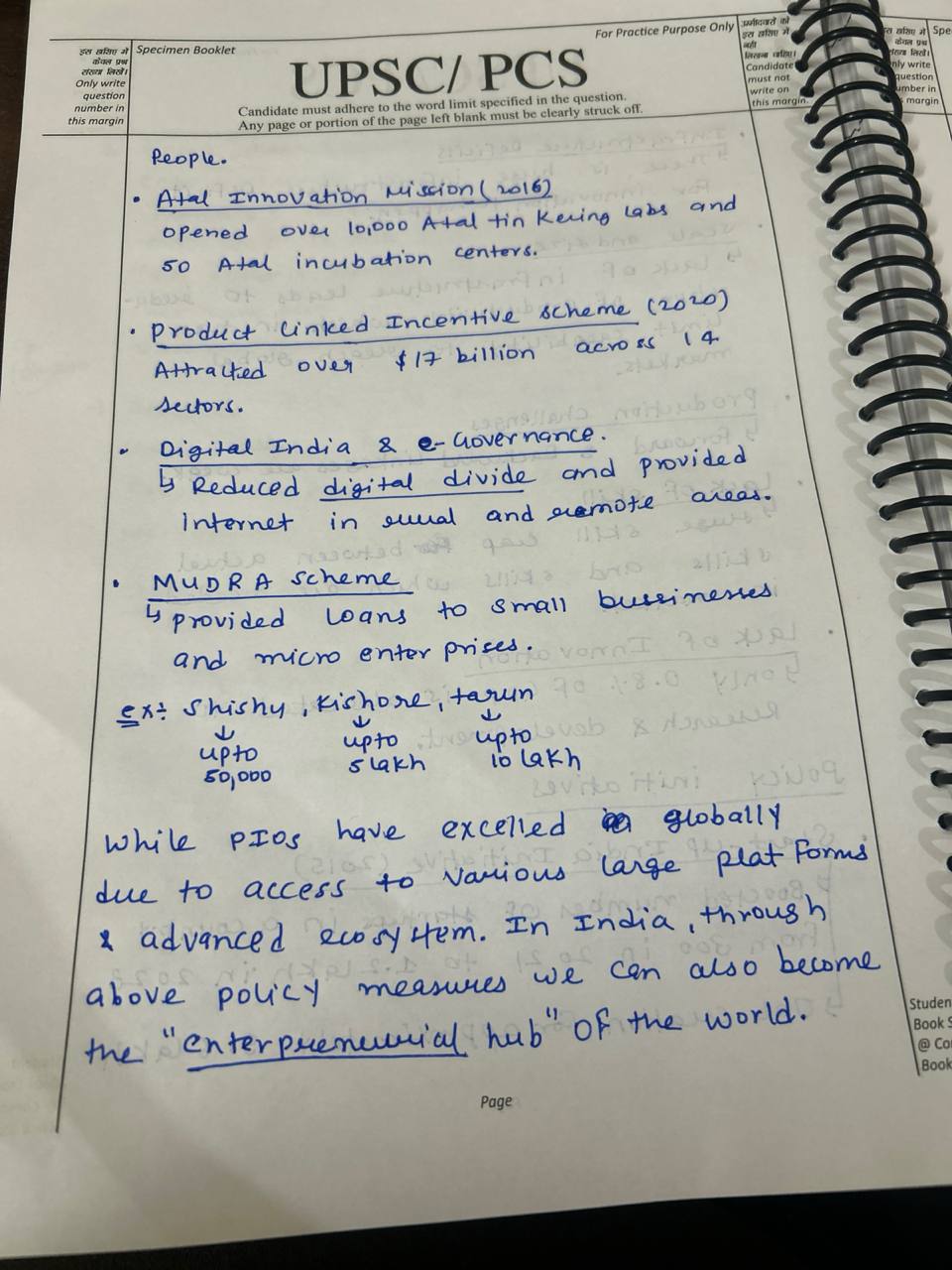How does keeping persons with disabilities out of formal employment impact both individuals and society as a whole?
Model Answer Effects of Persistent Economic Inequality in India India's persistent economic inequality has far-reaching consequences that affect various aspects of society and the economy: Economic Risks: High levels of inequality can undermine economic growth and macroeconomic stability. When lowerRead more
Model Answer
Effects of Persistent Economic Inequality in India
India’s persistent economic inequality has far-reaching consequences that affect various aspects of society and the economy:
- Economic Risks: High levels of inequality can undermine economic growth and macroeconomic stability. When lower-income households struggle to maintain health and accumulate capital, overall economic productivity suffers. Additionally, extreme inequality can erode trust and social cohesion, leading to conflicts that deter investment.
- Increased Social Polarization: Economic inequality hampers poverty reduction and social mobility. In a country already divided by religion, region, gender, and caste, rising inequality introduces another layer of division, exacerbating social tensions .
- Political Risks: Concentration of wealth can lead to a concentration of political power, marginalizing vulnerable populations in policy-making processes. This dynamic can foster crony capitalism and monopolistic practices, further entrenching inequality .
- Hampering of Social Justice: Inequality contributes to various health and social issues, including reduced life expectancy, higher infant mortality rates, and poor educational outcomes. These factors collectively hinder social justice and equity .
- Policy Risks: Growing inequality may provoke backlash against economic liberalization and fuel protectionist sentiments against globalization and market reforms.
Challenges in Addressing Economic Inequality
Several challenges complicate efforts to reduce economic inequality in India:
- Proliferation of Low-Paid Jobs: The NITI Aayog has noted a significant prevalence of low-wage, low-productivity jobs, which restrict upward mobility for many citizens.
- Low Investment in Health and Education: Economic inequalities limit the majority’s ability to invest in health and education, stunting human capital development. Furthermore, government spending in these sectors is minimal compared to developed nations .
- Taxation Issues: Ineffective redistributive policies result in an uneven tax burden, disproportionately affecting the poor. For instance, the poorest half of the population bears nearly two-thirds of the Goods and Services Tax (GST) burden .
- Social Factors: Caste and gender inequalities significantly restrict both intra-generational and inter-generational mobility, perpetuating cycles of poverty and disadvantage .
To address these challenges, measures such as taxing the wealth of the richest 1%, easing the tax burden on marginalized groups, improving access to public services, and strengthening labor rights are essential for promoting equity and social justice in India.
See less



Automated banking necessarily means automatic transactions, settlements of payments, and maintenance of accounts. It's is one main foundational factor for core banking. It not only saves time but also makes it easy for bankers as well as customers. Many new policies can be introduced and implementeRead more
Automated banking necessarily means automatic transactions, settlements of payments, and maintenance of accounts. It’s is one main foundational factor for core banking. It not only saves time but also makes it easy for bankers as well as customers. Many new policies can be introduced and implemented only due to Automated banking. It makes the complex banking process user friendly giving them access to their account from any part of the world. It also saves them from frequent discrepancies caused due to manual banking process.
See less